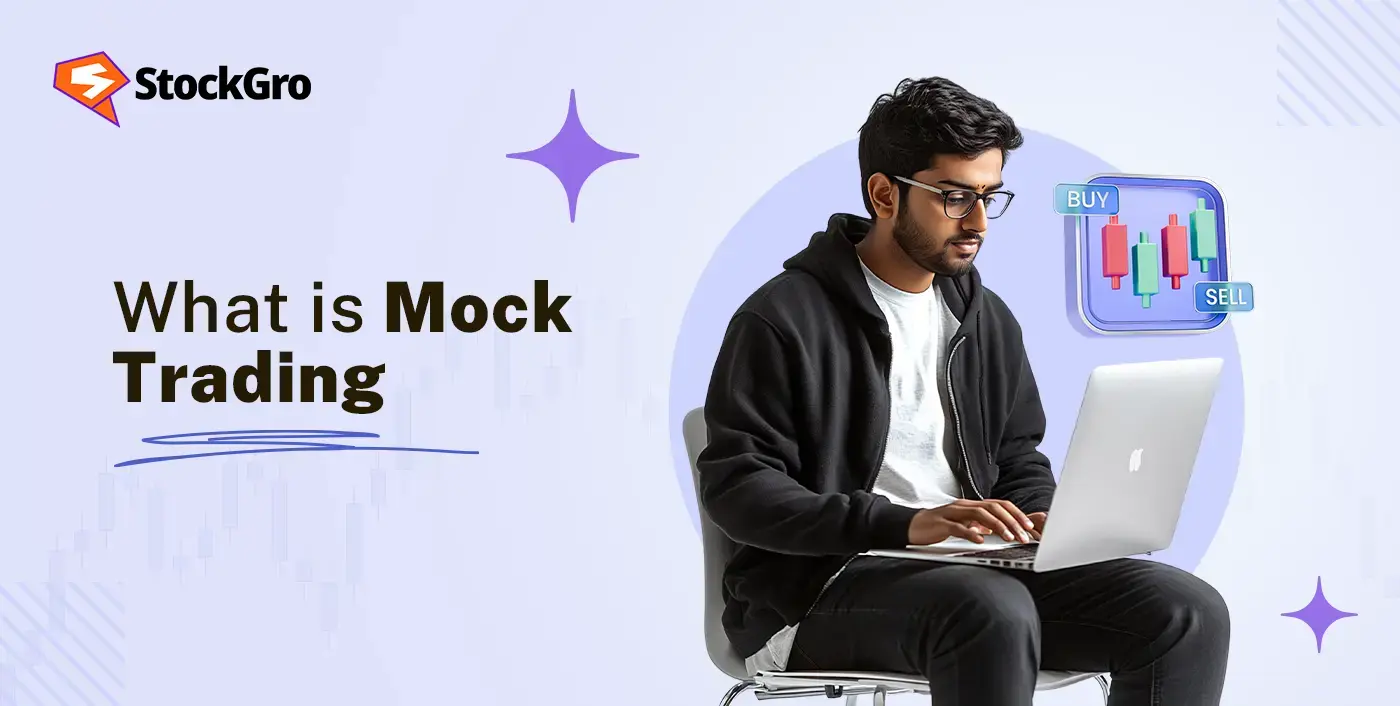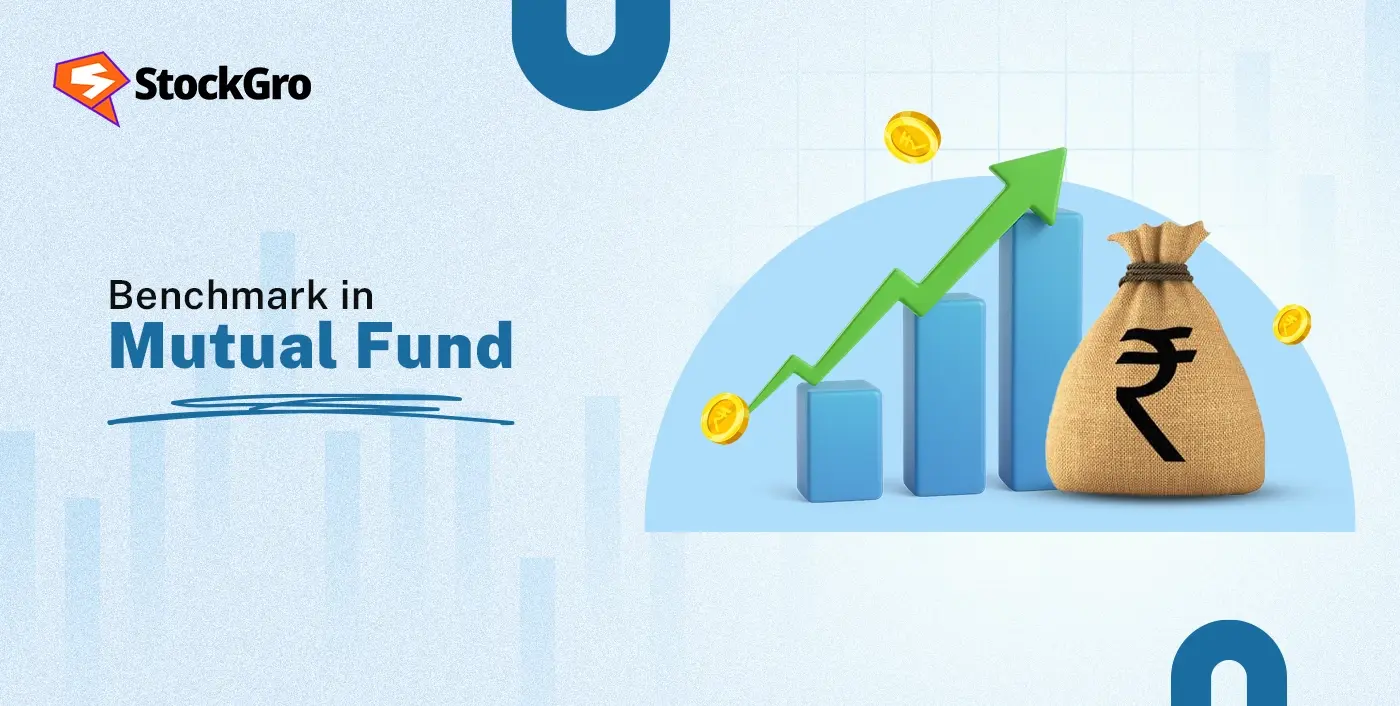
Investing in stocks is a matter of speed, precision, and being able to adjust to the fast-evolving circumstances. Prior to participants in the market, exchanges are used to test systems and strategies in a risk-free manner. That is where a simulated trading session is introduced.
Mock trading is an activity that is conducted by stock exchanges and brokers, and which involves simulating a real market scenario without involving financial risk. It enables participants to place orders, test technology, and understand how systems behave under live conditions. It is also a must-have requirement for brokers, ensuring that their trading platforms, connections, and risk management systems are prepared to take action. For investors and retail traders, the same concepts can be applied to demo accounts and simulated platforms.
This blog will discuss what is mock trading session, why it is important, how it functions, the differences between a mock trading session and a live trading session, who is eligible to participate, and the best practices to adopt.
What Is Mock Trading Session?
A mock trading session is a session conducted by stock exchanges, like NSE and BSE, members have the opportunity to test their strategies in simulated market conditions.
It is normally set up on days that are not trading days, usually on a Saturday, so as not to interfere with the actual market activity. Orders placed in the mock session are not actually traded, but the placing process, order modification, and order matching are performed the same way as in live markets.
This renders simulator trading a powerful tool in the preparation of trading systems, the readiness of brokers before the market opens, and verification that any updates or new features are functioning properly.
Purpose & Importance of Mock Sessions
Mock sessions can take several forms, and they may serve as both technology and skill validation. Exchanges require involvement to ensure stability and minimise risks in the market. Break down the key goals:
System Testing & Infrastructure Validation
The primary objective of a mock trading session is to verify that trading systems, risk management modules, and connections to the exchange are functioning properly. To brokers, this is crucial to ensure the smooth execution of trades by clients during live sessions.
Exchanges often upgrade software, add new rules, or fine-tune order-matching algorithms. Mock trading enables the brokers to preview these updates. In the absence of such a test, any software mishaps during live markets would result in extensive havoc.
Training & Familiarisation for New Tools
Mock sessions also serve as a training ground. These sessions can be used by brokers and traders to familiarise themselves with new tools, trading features or interface changes by exchanges or broker platforms.
As an illustration, when a new type of order or risk control feature is being deployed, mock trading will enable participants to learn how to use it before it affects live trading. This minimises errors and increases user confidence.
Recovery & Disaster Testing
Disaster recovery testing is also another important purpose. Market infrastructure is dependent on technology and servers, which can break down because of power outages, cyber threats, or technical glitches. Mock sessions emulate those conditions and allow brokers to test their continuity plans and their backup systems.
Exchanges and brokers can pre-empt possible problems before they occur and prevent panic and pandemonium in actual emergencies.
How Mock Trading Sessions Work
After learning what is mock trading session is, let’s see how it works. Mock trading follows processes similar to real sessions but without monetary consequences.
Simulated Order Placement & Matching
A mock session provides participants with the opportunity to place buy and sell orders through their trading terminal. Such orders are like those in a live setting that are matched. Traders have an opportunity to visualise the behavior of various types of orders (market order, limit order, stop-loss order, and so on).
The principal distinction lies in the fact that no money or securities actually change hands. This simulation provides an opportunity to practice with no fear of loss.
Scheduling & Typical Frequency (e.g., monthly Saturdays)
Indicatively, a stock exchange such as NSE and BSE is likely to schedule mock trading on a Saturday. These are typically monthly, or as a regular practice, once a major system upgrade or regulatory change is implemented.
Brokers can be required, and others can be voluntary. The exchange issues a circular in advance indicating the timings, goals, and technical instructions of a session.
Mock Trading vs. Live Trading
The processes of mock trading can resemble actual trading, yet these are the key distinctions that turn it into a closed environment.
Risk, Emotion & Cost Differences
Mistakes have the potential to incur significant costs in live trading. Only one incorrect order can be costly. Mock trading, on the other hand, removes this financial risk.
Additionally, the live market’s emotional pressure, fear of loss, and thrill of profit are not part of mock sessions. This facilitates the participation of the participants in system testing and learning in isolation.
Learning Curve Advantages
Mock trading is an excellent site to experiment and learn because it is not linked with risk. Experiments may be tried, and mistakes may be tolerated.
This saves time on learning and helps to develop confidence before moving to live markets.
Who Can Participate: Brokers vs Retail Traders
The primary customers of the mock sessions are trading members and brokers. However, broker-offered demo platforms can offer the same opportunities to retail traders.
Exchange-Only Access for Brokers
Formal exchange-based mock exercises are typically restricted to brokers, trading members, and institutional customers. This is because the primary goal is to verify system readiness and compliance.
Retail investors typically cannot access these sessions directly through the exchange. Rather, their brokers ensure that mechanisms are in place in a way that does not affect their clients when trading in live markets.
Retail-Friendly Platforms Offering Demo Accounts
For retail traders, a large number of brokers offer demo accounts or simulated trading platforms. These are a simulation of real-time market conditions, enabling people to train without the loss of money.
For example, StockGro can support virtual balances of cash in order to test order placement and strategies. These, although technically non-exchange mock trading, are analogous to exchange mock trading to a novice.
Best Practices for Using Mock Trading
To maximise the benefits of mock trading sessions, certain best practices should be followed:
- Test New Features Thoroughly – It is ideal to keep the backup servers, secondary networks, and alternative paper trading systems to test through mock sessions.
- Verify Disaster Recovery Plans – It is ideal to maintain backup servers, secondary networks, and alternative trading systems to test through mock sessions.
- Use for Training Teams – Brokers may use this opportunity to educate their employees and ensure that the customer support teams are aware of the new workflows.
- Experiment with Strategies – Traders with demo platforms may test new strategies without the pressure of money.
- Document Observations – The session is to record issues, errors, or unusual behaviours that should be shared with the exchange to resolve.
- Stay Updated – Participants will be expected to read exchange circulars attentively to know the objectives of every mock session.
Conclusion
A mock trading session is not a normal practice, but rather a rehearsal and risk mitigation process set aside to facilitate the smooth operation of capital markets. These are designed to allow exchanges, brokers, and traders to test systems, train teams, and prepare themselves to respond to unexpected events by simulating live trading risk-free.
When it comes to brokers, they should take part in order to support adherence and demonstrate trust in clients. Demo platforms can be thought of as the retail investor equivalent of mock trading, in which they are able to gain knowledge and practice without incurring costs.
Finally, simulated trading sessions empower the market, reduce risks, and engender confidence in every participant. Mock trading is very critical in those situations that are either about a broker testing their infrastructure, or an amateur testing their strategies. When the real markets open, we are all set.
FAQs
A mock trading session is a market simulation exercise carried out by stock exchanges to test their systems, processes, and connections before real-life trading. It uses a simulation of real market floors, with no financial risk, so that brokers, traders, and exchanges can validate order placement, matching, and settlement flow. Such gatherings will facilitate the briefing of the technical foundation and members to operate smoothly in the market.
At trade fairs, the business is usually organised on an agreed day, usually within the weekend ( Friday and Saturday ) when other markets are not open. They may also be introduced before major system changes, a regulatory change, or after longer holidays to bring stability before reopening. This kind of session is typical of India, where NSE and BSE try to test technology platforms. In most cases, the timetable is made available in advance through official circulars so that brokers and participants can prepare themselves prior to conducting system and connectivity inspection.
Mock trading sessions are primarily used by brokers, exchange members, and institutional market participants as a means of stress-testing their trading infrastructure and risk management systems. Their direct access to exchange-led mock sessions is normally not given to retail traders. However, many brokerages offer more retail-friendly packets, such as demo accounts or paper-trading applications that are more or less identical. It allows individual newsers to simulate and become familiar with trading interfaces, without committing funds, which is comparable to exchange mock sessions.
Mock trading is a simulated process in which no money or securities are bought and sold. It is performed under risk-free conditions to put into trial systems and processes. In contrast, live trading involves real money, emotions, and market risks. Mock sessions are about learning sessions, detecting mistakes, and verifying infrastructure, but the actual live trading comprises actual decision-making under pressure.
Mock trading sessions are characterised by a number of benefits, such as the ability to verify the stability of the system, its infrastructure, and preparedness to trade in large volumes. It assures brokers that their trading terminals, risk controls, and connections fit within the exchange. It can provide experience to users who use demo accounts and do not risk their true money. The testing of the disaster recovery systems can also be carried out in such seminars, thus minimising the risk of glitches in the case of live markets.
The objective of the mock trading sessions would be to replicate the conditions of the live market, like the process of placing orders, matching, and settlement. In order to simulate realistic activity, we simulate price movement and trade volume. Since no actual money or real securities are involved, there is no live trading, emotional, and financial pressure. This means that they cannot fully mimic any of the psychological factors of market participation, despite them being technically realistic.

